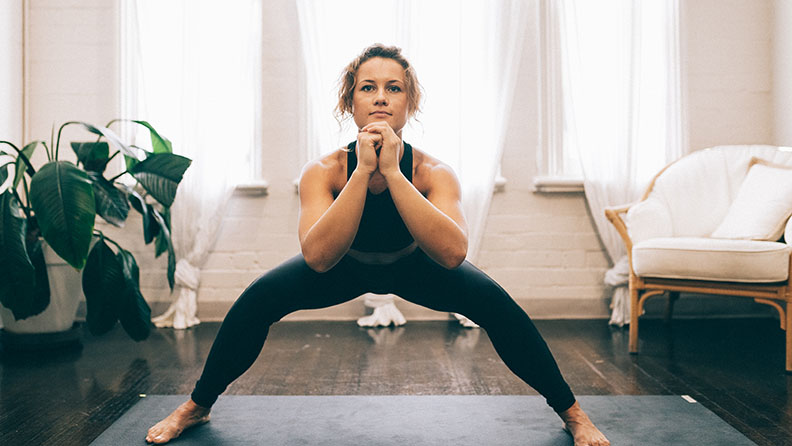-
There are always times in life when you won’t be able to train or exercise as often as you’d like, or perhaps you feel like your fitness goals have gone out the window this winter. We asked Carly Ryan from Exercise and Sports Science Australia how quickly we lose the fitness we’ve worked so hard to achieve, and share our top tips to get your training back on track this spring.
But first, a few things to consider
Often referred to as deconditioning or detraining, how quickly you lose fitness depends on several factors, such as how fit you are to begin with, how frequently you generally work out and how long you’ve been out of action. A person with a higher level of fitness will experience deconditioning at a slower rate than someone who is relatively new to exercise.
And according to Carly, “we know that the less active you are, the quicker the loss. For example, people who are bed bound can see significant loss of muscle mass and cardiovascular fitness in just one week. If you are still active in your daily activities the loss will be slower. “
Age, gender, and the reason you’ve stopped exercising are also factors to consider. Meaning the effects of deconditioning due to inactivity will vary from person to person.
1 to 2 weeks for cardio loss
Your body’s ability to transport and utilise oxygen is one of the first things you’ll notice after a prolonged period of inactivity.
“It’s the first thing that starts to decline - you will likely feel a small difference after 1 week without exercise. After 2 weeks, there is significant loss”, says Carly.
2 to 3 weeks for strength loss
When it comes to maintaining your muscle strength, Carly says, “Muscle mass (the size of the muscle) decreases when there is no stimulus, and your muscles become less efficient. Some suggest you can lose up to 10% of strength in one week, and over three months you will lose most of your gains.”
However, with some limited movement and light exercise, you can take more time off without significant strength loss.
Read more: Setting recovery goals after injury
How long does it take to lose your fitness?

-
Stretches for gym enthusiasts
8 stretches to help you cool down from workouts
-
Stretches for office workers
Stretch out your back and relieve stress
-
Stretches for runners
Stretch your legs, hips and back after a long run
-
How to walk 10,000 steps
Discover how to easily reach your goal of 10,000 steps daily.
-
Everything you need to know about parkrun
Been wondering what a parkrun looks like? Where do you go? What do you do? How do you sign up? Find out here.
-
Five ways to exercise when on a budget
You don’t need to spend money on gym memberships just to meet your fitness goals. Here are five free ways to stay healthy and active when you’re living on a budget.
Subscribe to receive the best from Live Better every week. Healthy recipes, exercise tips and activities, offers and promotions – everything to help you eat, move and feel better.
By clicking sign up I understand and agree to Medibank's privacy policy






